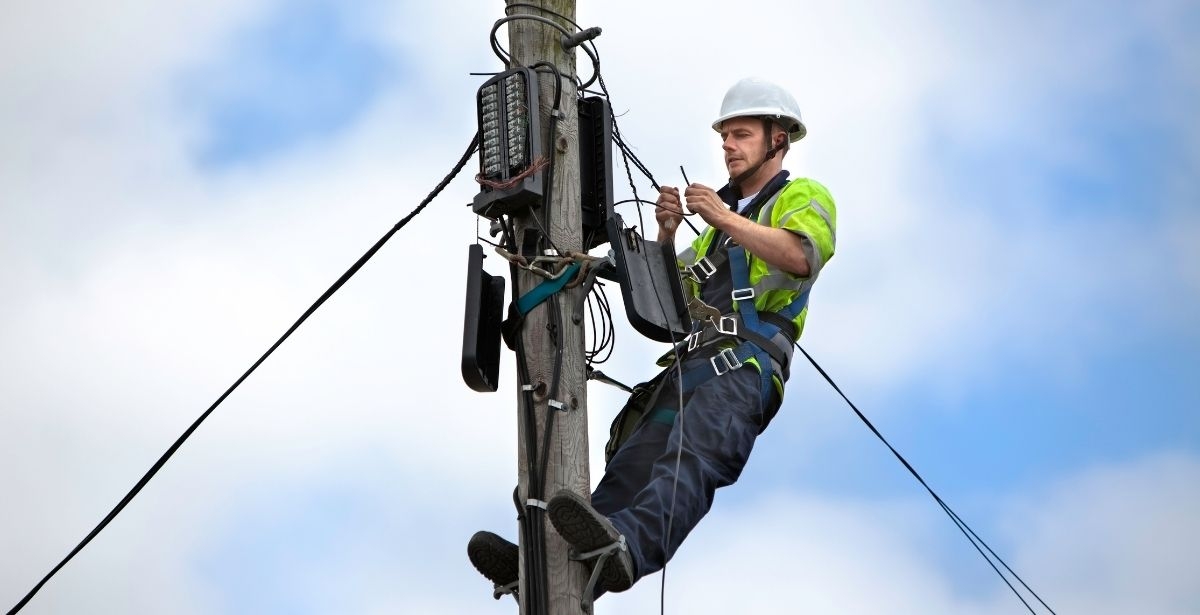
What to Know About a Fiber Optics Technician Career
Fiber optic cables are the backbone of telecommunications. They keep us connected through the communication services we use such as telephones, high-speed internet, and even television. Fiber Optics Technicians install and maintain these cables so that communities—and people—can stay connected with each other. As a Fiber Optics Technician, you’d set up and service these systems in businesses, hospitals, schools, and homes.
What Does a Fiber Optics Technician Do?
Fiber Optics Technicians work for telecommunications companies that supply phone, internet, and cable services. During a typical day on the job, you can expect to:
- Install new systems and wiring at a home or place of business
- Make repairs to old systems and wiring
- Inspect existing fiber optics systems for problems that could interrupt service
- Test old wires and repair those that malfunction
- Measure the strength of Internet speeds or cable connections to determine a system’s performance
- Pull out old cable or splice them to troubleshoot problem areas
If you’re a premises installer, you’ll mostly work indoors, but if you’re an outside plant technician, you’ll mostly work outdoors. No matter what setting you favor, you can expect some physical demands from the job such as standing for long periods of time, climbing ladders and utility poles, or crawling into tight spaces. You may need to lift and carry heavy equipment, parts, and tools. You’ll also work with tools like fiber splicers and optics meters that will help you solve and repair issues with the system.
What Skills Does a Fiber Optics Technician Need?
In this field, you’ll use a combination of hard and soft skills. For instance, you’ll need to be deft at handling fibers, which are encased in fine strands of glass and therefore, very fragile. You’ll also need to know how to clean fibers and keep them protected from the elements. Here are a few other skills you’ll need:
- Caution: You’ll need to adhere to strict safety guidelines. Fiber optics are installed near electrical lines, so you’ll need to take care when handling these cables to prevent shock or fires. You’ll need to wear goggles to protect your eyes from the laser light inside of the optic cable and wear a disposable apron to keep fibers from collecting on your clothes. You’ll also need to learn how to properly use the heavy equipment and machinery that’s required to do the job.
- Communication: Although you may work a job on your own, you’ll still be part of your company’s team. Communication will be an important skill to have as you build a working relationship with your boss and coworkers. You also need to have good customer service skills when you deal with clients. You’ll need to act professionally, explain what you’ll need to do, and answer any questions they may have.
- Technology: Broadband technology continues to evolve, so you’ll need to keep up. You’ll need to be familiar with both old and new technologies so you can properly install modern systems but repair issues with old systems. And you’ll need to be savvy with more traditional tech like email and text messaging.
How Do I Become a Fiber Optics Technician?
Fiber Optics fall under low voltage technologies. To learn what you need to work in the field, you can enroll in a Low Voltage Technology program. Porter and Chester Institute in Connecticut offers a program led by professionals from the field that you can complete in as little as one year. Fill out the form to learn more.






